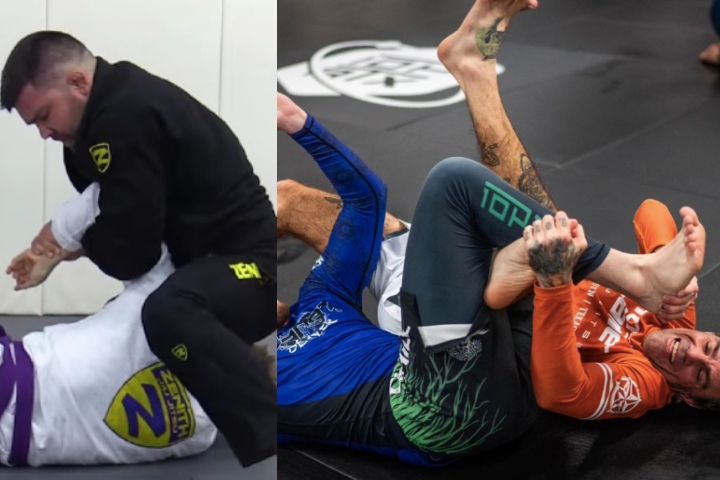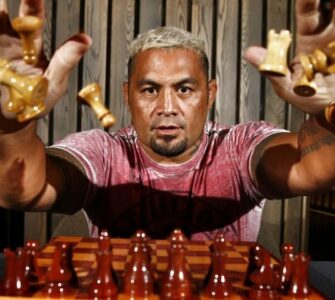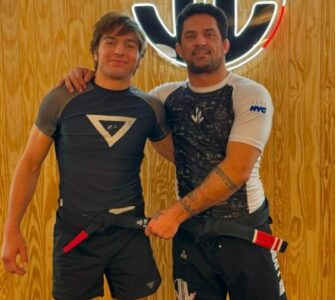In a recent episode of the “I Suck At Jiu-Jitsu Show” hosted by Josh McKinney, BJJ and ADCC world champion Robert Drysdale shared his perspective on the current state and evolution of Brazilian Jiu-Jitsu (BJJ). The episode, titled “The Legacy of Carlson Gracie Sr. and the Evolution of BJJ,” featured a clip that sparked a significant debate on the path that Jiu-Jitsu is taking.
The Wrestling vs. Jiu-Jitsu Paradigm
Drysdale’s comments centered around a comparison between wrestling and Jiu-Jitsu, suggesting that while wrestling has maintained a focus on simplicity and efficiency, Jiu-Jitsu might be drifting away from these core principles. He emphasized that evolution in Jiu-Jitsu should be guided by simplicity and efficiency, rather than sophistication and complication of moves. Drysdale expressed concern that the Jiu-Jitsu community is increasingly perceiving the martial art like an iPhone, where newer is automatically considered better.
The Allure of Complexity
Drysdale: “What should be guiding Jiu-Jitsu is efficiency, not popularity or how cool it looks.”
Drysdale drew parallels between the current trends in Jiu-Jitsu and the flashy, yet impractical, techniques popularized in Taekwondo during the 1980s. He fears that Jiu-Jitsu is heading in a similar direction, prioritizing what is ‘cool’ or popular over what is genuinely effective in combat. This approach, according to him, risks distancing practitioners from the reality of combat.
Simplicity Equals Efficiency
Drysdale stated: “Jiu-Jitsu’s evolution is simple and efficient, not sophisticated and complicated.”
Using the analogy of the AK-47, known for its simple yet efficient design, Drysdale argued for a Jiu-Jitsu style that embodies similar qualities. He believes in a Jiu-Jitsu form that is straightforward, with fewer parts to break, much like the celebrated rifle. This philosophy aligns with Carlson Gracie’s vision and is something Drysdale deeply resonates with.
The Impact of Social Media and Trends
“Knowing too many moves is mistaken for good Jiu-Jitsu, which I think is detrimental.”
Social media and the internet have significantly influenced modern Jiu-Jitsu training, often highlighting sophisticated and flashy moves that may not be practically efficient. Drysdale pointed out that these trends lead to a herd mentality where popularity often overshadows effectiveness. This phenomenon, he believes, is overwhelming for learners, as they are bombarded with an excess of information.
Contrasting Wrestling and Jiu-Jitsu
“In wrestling, they practice like four or five things over and over, like boxers with their six punches.”
Drysdale noted that wrestling and boxing focus on a limited number of techniques, perfected through constant practice. This approach contrasts with Jiu-Jitsu’s current trajectory, where knowing a multitude of moves is often mistakenly equated with skill. He advocates for more emphasis on mastering a few techniques rather than superficially learning many.
The Dilemma of Learning and Teaching Jiu-Jitsu
“We’re distancing ourselves from the reality of combat; it’s getting harder for people to learn Jiu-Jitsu.”
The conversation also touched upon the challenges in teaching and learning Jiu-Jitsu in the current environment. Drysdale observed that there is often an arrogance among students who believe they know a move and hence do not pay adequate attention. He stressed the importance of continually learning and refining even the most basic techniques, as there is always something new to discover, regardless of one’s expertise level.
Robert Drysdale’s reflections on the state of Brazilian Jiu-Jitsu highlight crucial issues regarding its evolution and teaching methodologies. His call for a return to simplicity and efficiency resonates with the foundational principles of martial arts and serves as a valuable perspective for practitioners at all levels.


















